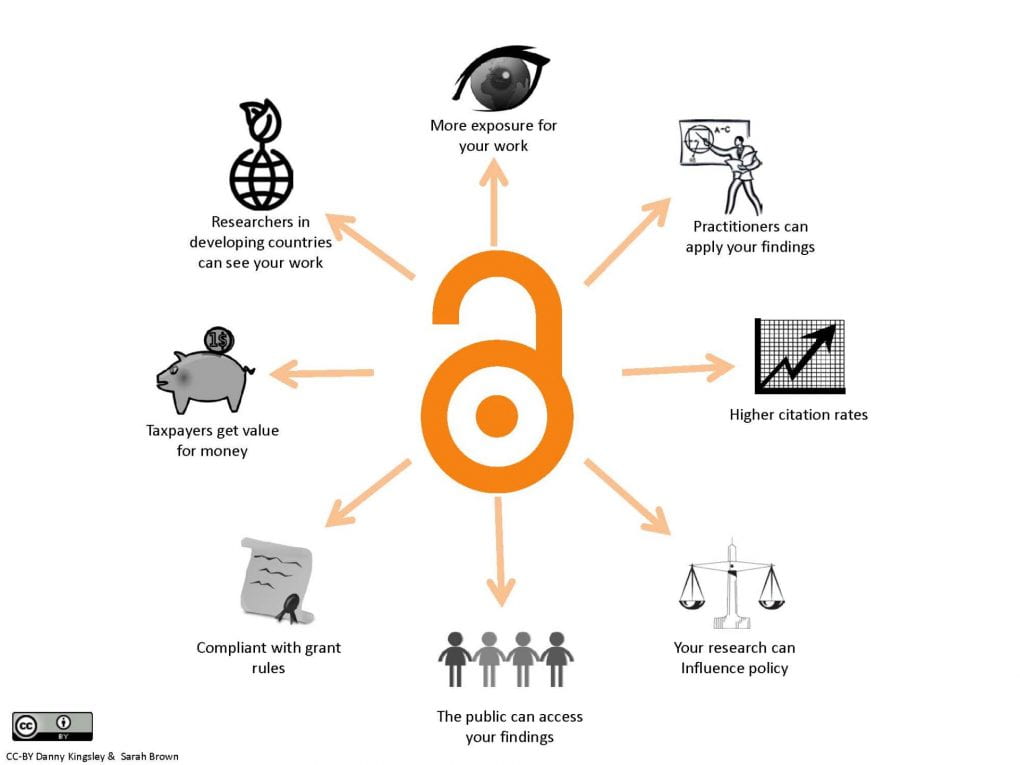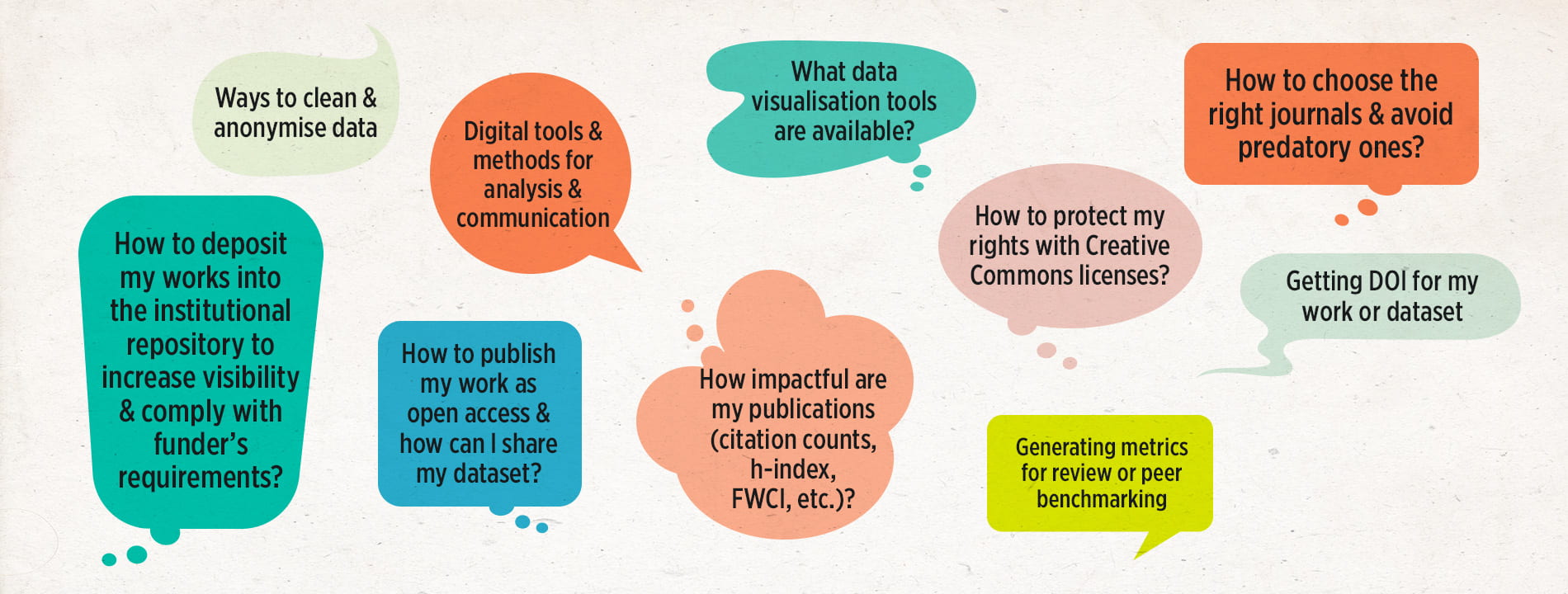The Scholarly Communications Team held two live chat sessions on 18 May, 10-11.30am and 27 May, 2-3.30pm where we answered questions from the NUS community on Zoom.
Participants signed up and sent in their questions beforehand. During the live chat, they were assigned to different breakout rooms where they received 1-on-1 personal advice tailored to their needs.
We covered a wide range of topics such as:
Richard, our Research Impact Measurement team lead, handled questions on research impact measurement. Several participants were keen to learn more about the different research impact metrics such as h-index and FWCI while others asked about altmetrics and how to share their research to others online.

Article-level metrics at PLoS by Dunk is licensed under CC BY 2.0
There were also more queries on identifying predatory journals and conferences. This is a good indication that NUS authors are now more aware of such exploitative practices and are trying not to fall prey to them.
More details can be found on our libguides on Research Impact Measurement and predatory journals.

Roche DG, Lanfear R, Binning SA, Haff TM, Schwanz LE, et al. (2014), CC BY 4.0, via Wikimedia Commons
Wendy, our Scholarbank@NUS team lead, handled the queries on our institutional repository, Scholarbank@NUS. Participants were interested in knowing how to deposit publications as well as datasets to fulfill funders’ requirements and increase research visibility. Using Sway, Wendy presented the ways in which NUS authors can check for copyright and deposit via NUS Elements.
More details can be found on our FAQs and guides on depositing publications, datasets, and different publication versions.

User: Trubina Liza, CC BY 4.0, via Wikimedia Commons
Gaetan leads the Digital Scholarship team and received questions on data visualisations for research. He shared tips on data cleaning and creating simple interesting visualisations using Excel or more specialised tools like Rawgraphs or Tableau, which we offer at the DS Lab.
To learn how to clean your data, check out our libguide.

Danny Kingsley & Sarah Brown, CC BY 4.0, via Wikimedia Commons
Esther tackled questions on Publishing and Open Access. Participants were interested to find out about Creative Commons (CC) licenses and Article Processing Charges (APCs). In particular, they wished to know what are the different CC licenses available and which would be appropriate for their open access article to help protect authors’ rights. Esther also shared about the APC deals that NUS Libraries has with publishers.
More details can be found on the scholarly publishing libguide.
The event was a success. Participants found the chats
“Efficient and effective in addressing their queries.“
and that they received
“Some really helpful suggestions and advice, including resource links and materials, which would help them in their future project tasks.”
Look out for another run next semester and other Scholarly Communications events!
Do feel free to contact us anytime for queries on scholarly communication and digital scholarship:
 |
| Richard Research Impact Measurement |
Wendy Scholarbank@NUS |
Gaetan Digital Scholarship |
Esther Scholarly Publishing |

